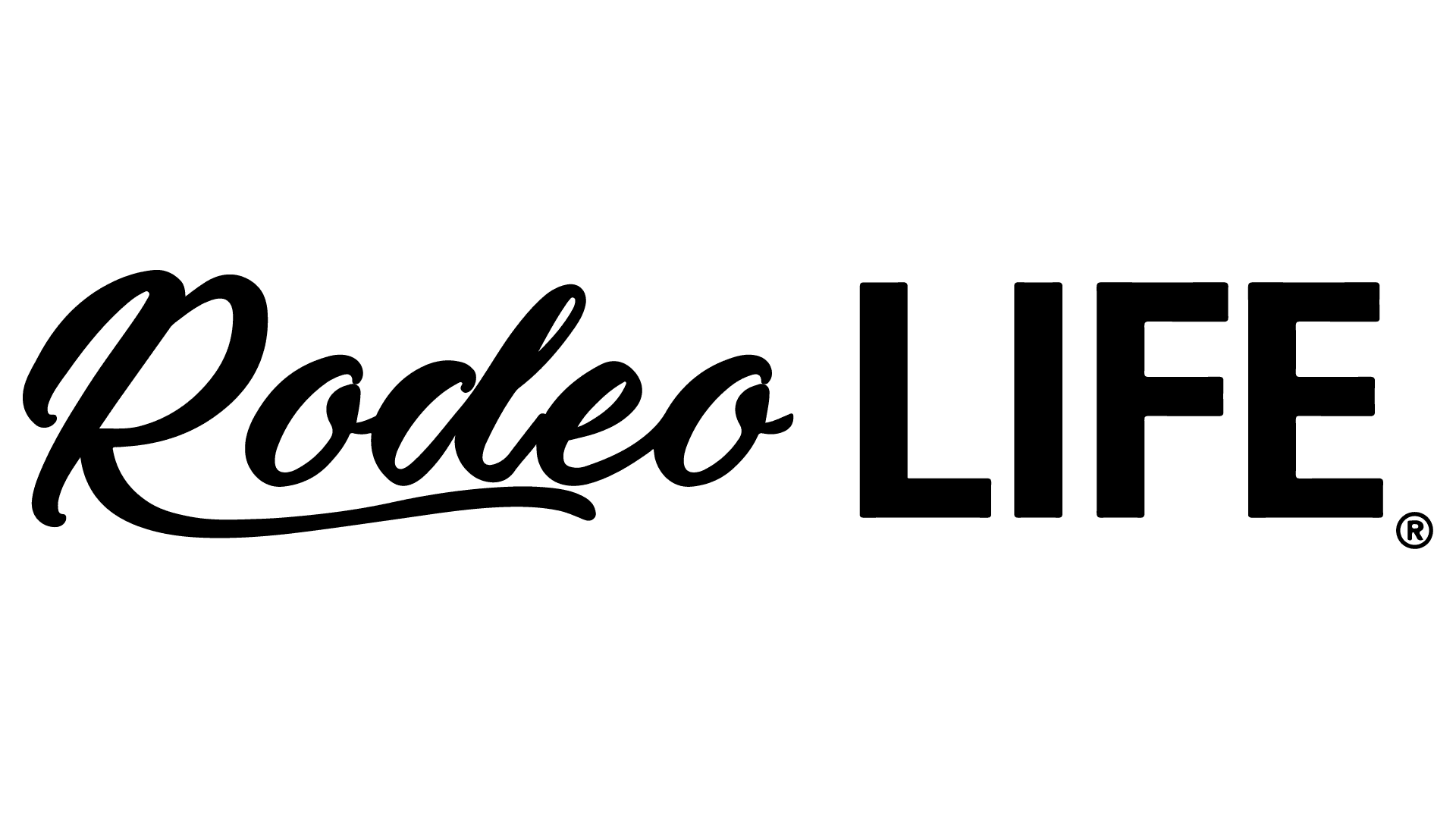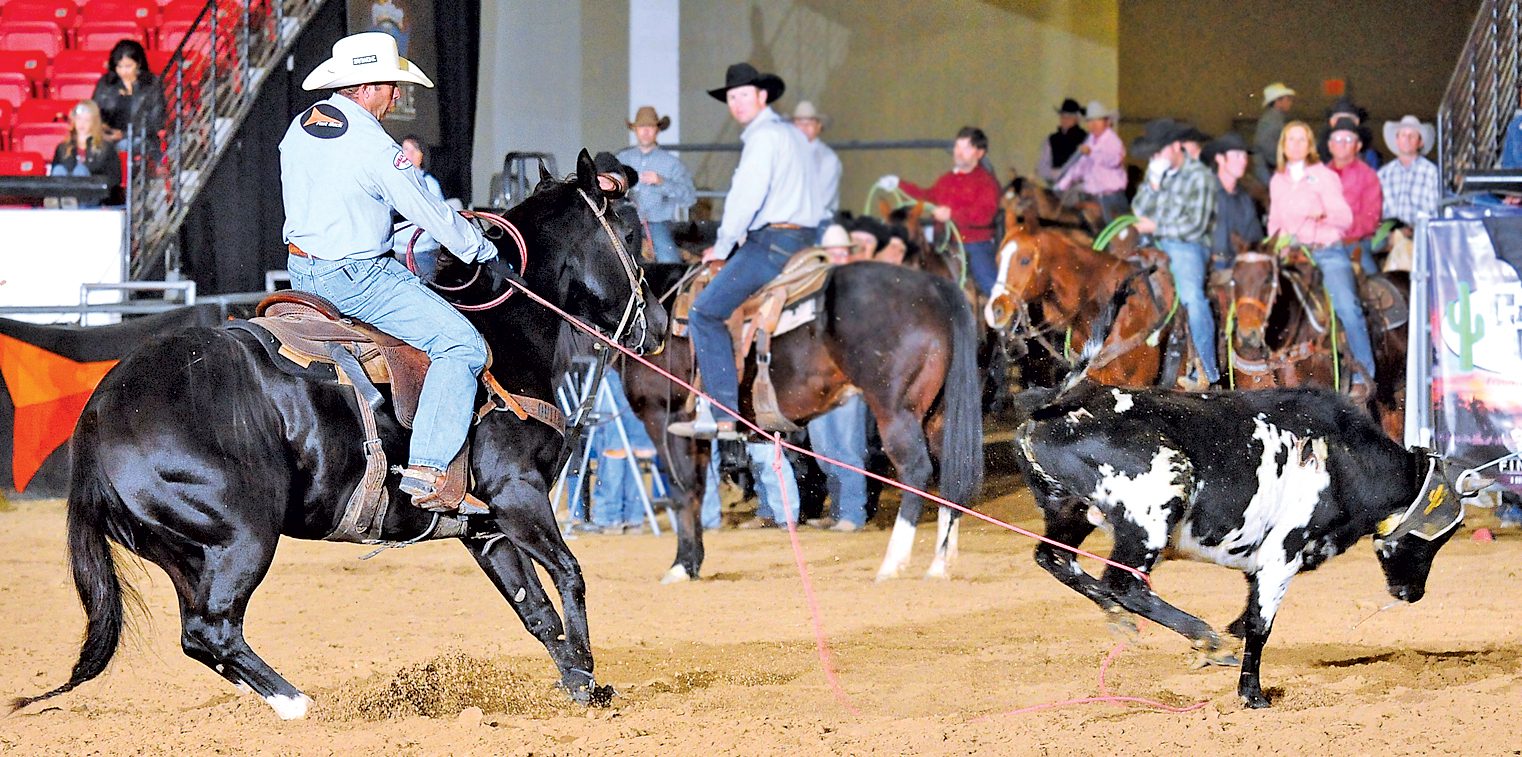A good and positive attitude is a common trait amongst people who excel at anything. A trait not as common, though respected as much or more, is humility. When asked about his life and accomplishments, Mike’s first reaction is to talk about the people who helped him.
Mike White grew up in Lake Charles, Louisiana where rodeo was a way of life. His older brother, Pat, was a bull rider, bullfighter, and stock contractor who Mike fondly describes as a workaholic.
“Pat rode bulls outstanding,” says Mike. “Probably better than me. What he didn’t like was traveling and being gone, so he never made a career of it.”
As a youngster Mike took part in most rodeo events including team roping, bull dogging, calf roping and riding bulls. He was given a lot of responsibility at a young age and by the time he was sixteen he was driving a semi hauling bucking stock to rodeos.
At age 15, he was also riding racehorses as a jockey and fought to keep his weight down. When he got his jockey license at 16, he was also trying to ride bulls. Two fellow jockeys, Chris and Aaron Emigh, helped with his decision.
“They told me I needed to choose between the two. In order to be a jockey I would have to stay sick and puny to keep my weight down. If I didn’t want to do that, I needed to ride bulls.
“I chose to ride bulls and had every opportunity in the world to become good because of my brother. He was my teacher, my mentor, and would help me at any time of the day or night.”
Mike’s rookie year in the PRCA was 1997. He made the finals that year and set the record for the most money earned as a rookie, finishing 5th in the standings. The next year he returned to the NFR with a good chance at winning the world. After five rounds and no qualified rides, Mike was getting more advice on bull riding than he could process. He called his brother, Pat, who said, ‘What you’re going to do, after the next perf, is get on a redeye flight, come home and get on some bulls. Then you can fly back to Vegas in time for the next performance.’
“I told Joe Baumgartner my plan and he told me to hold up. He got me hooked up to ride some bulls at Michael Gaughan’s place, and told me I could get on as many as I wanted,” says White. “I got on three bulls, got my confidence back and rode four out of the next five bulls at the NFR.”
In 1999 Mike hit the rodeo trail hard. It was the end of July and he was winning the world when he realized he was burned out. He told his traveling partner, Myron Duarte, that he was done and headed home. Myron said, ‘You can’t do that, you’re winning the world.’ Mike didn’t care; he was tired of the road.
Fast forward to the last three weeks of the rodeo season. White has fallen out of the top fifteen when he calls Myron and told him to enter him in the remaining rodeos.
“Don’t worry, you’re already entered,” responded Duarte. “You’re going to have to turn out some because I have you double entered. This is what you get for being lazy.”
White admits it was costly as he took last minute flights to get to the rodeos where he had drawn the best. He made the finals in 13th place by several hundred dollars. He went on to have an outstanding NFR and rode eight of the ten bulls and winning the world that year.
“I was burned out and tired of going,” explains White. “If you’re tired, you’re not going to perform to the best of your ability. By the time I went back, I was hungry for it.”
In July of 2000 White suffered a broken neck, keeping him out of action until the following year. After returning to competition, at a PBR event in Shreveport, Louisiana, his first bull stepped on and crushed his ankle. That injury kept him sidelined for seven months. At the third event, after recuperating, he was thrown and dislocated his shoulder, breaking the ball in it.
Admittedly being hardheaded, White refused the help of the Justin Cowboy Crisis Fund and used his own savings for bills and living expenses. When he did finally return to the arena, he had a total sum of $300, virtually starting completely over.
“I’ve dealt with a lot of injuries,” says Mike. “But that particular time was rough and a real eye-opener for me. It made realize just how short and humbling a bull-riding career is. I learned you should save and invest every dime earned for the end of your career.”
Mike always enjoyed team roping and training horses, but never found the time when he was riding bulls for a living. Upon retiring from bull riding in 2010, he and his wife, Hannah, started training and roping more.
“I love to rope and am probably addicted to it. It’s a very humbling sport. One day you’re a rock star and the next you can’t catch.”
Now rated a #7, Mike recalls being at an all time low with his roping and being entered in the Big 12, the day after the George Strait Team Roping. He called his nephew, Tyler Domingue, whom he taught to rope as a youngster, and asked for help.
“In true Tyler fashion, he pulls in at 11 p.m. to rope. In seven steers, he had me catching 95%. It’s ironic that I taught him and now I’m going back to him for advice. There are people who can rope well, but can’t explain it; then there are people who can break it down where it makes sense, and that’s Tyler.”
White, who turns 40 this year, has found his passion in training quality rope horses. They’ve sold three horses to past NFR qualifiers, mostly recently Clayton Grant from California. The Grants are enjoying the six-year old heel horse, calling him a “true gentleman.”
“There’s not a horse we sell that I won’t stand behind,” says White. “I don’t train or sell junk. I like nice horses.
“In life, the one thing you will always have is your name. Once you ruin that, you’re ruined for life. I will always stand behind mine.”
As a professional athlete, Mike is quick to point out the importance of sponsors and his responsibility to them.
“When one of your sponsors asks you to do something, your response should be ‘You bet, when and where do you need me.’ I’ve been blessed with great sponsors and I appreciate them very much. When you’re hurt, sometimes the only income will be from your sponsors. If you’re asked to do something by your sponsors and you don’t want to, don’t think people aren’t going to notice. In the rodeo world people see everything you do.
“Some of the sponsors that stuck with me after I retired from riding bulls are Big Tex Trailers, Fast Back Ropes, and Cooper Tires. I’ve always respected that.”
Mike and Hannah live in DeKalb, Texas, with their two sons, Logan, 12, and Morgan, 4. Each year they host Mike White’s Annual Pasture Roping & Benefit, a non-profit organization benefitting Ropin Dreams, an organization that benefits children with serious illnesses or injuries.
COWBOY Q&A
How much do you practice?
Every day.
Do you make your own horses?
Yes.
Who were your roping heroes?
Jory Levy. He really broke it down for me. He took the time to help me and that meant a lot.
Who do you respect most in the world?
My grandpa and my parents. Until the day he died, my grandpa opened the door for my grandmother. He never walked in a building with his hat on. He had a lot of respect for people and I learned a lot from him.
Who has been the biggest influence in your life?
My brother, Pat.
If you had a day off what would you like to do?
Take my wife to the beach.
Favorite movie?
Talladega Nights – “If you’re not first, you’re last.”
What’s the last thing you read?
The Bible
What makes you happy?
Roping and riding horses.
What makes you angry?
Losing.
If you were given 1 million dollars, how would you spend it?
I’d build a covered arena and donate most to a foundation, Ropin Dreams.
What is your worst quality – your best?
Best quality is honesty. Worst quality is being a workaholic.









